FLEAT Tanzania meets for a second time
- Published:
We held our second Faith Leader Environmental Advocacy Training (FLEAT) Tanzania workshop with a group of 19 participants at the Rungwe Hotel in Dar es Salaam from 25 to 27 April 2023. The group of 10 women and 9 men from various Christian denominations and Islamic faith came together to share the activities they planned during the first introduction meeting in October 2022.
The three days were focused on learning about food systems in Southern Africa, specifically Tanzania highlighting the propagation, harvesting and storage benefits of indigenous foods in light of the industrialized agriculture in Tanzania including the nutrition and medicinal benefits.
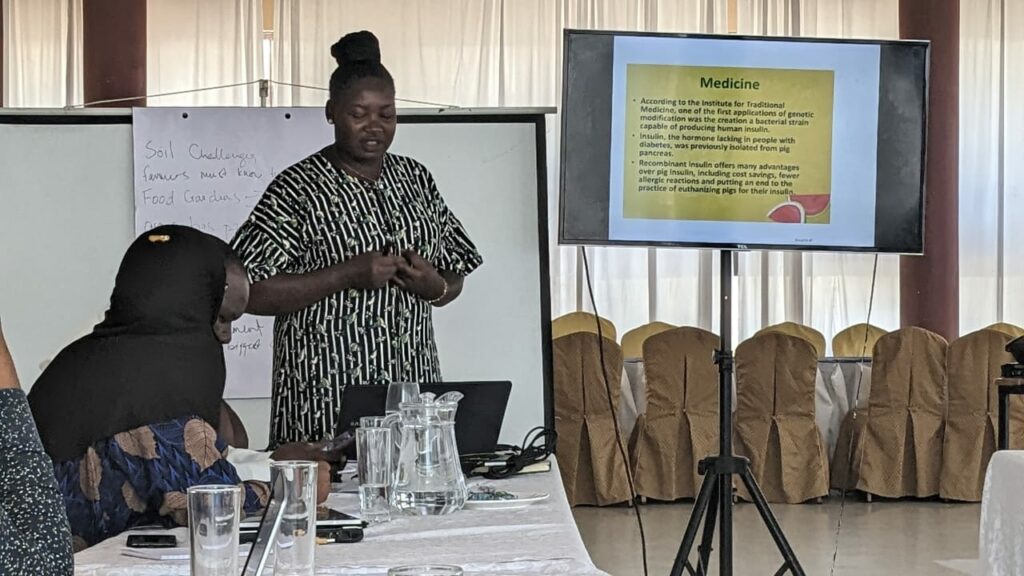
The group also joined online to celebrate the 6th Anniversary of SAFCEI and Earthlife Africa’s historical nuclear deal court case victory and learn about the future of nuclear energy in Africa.
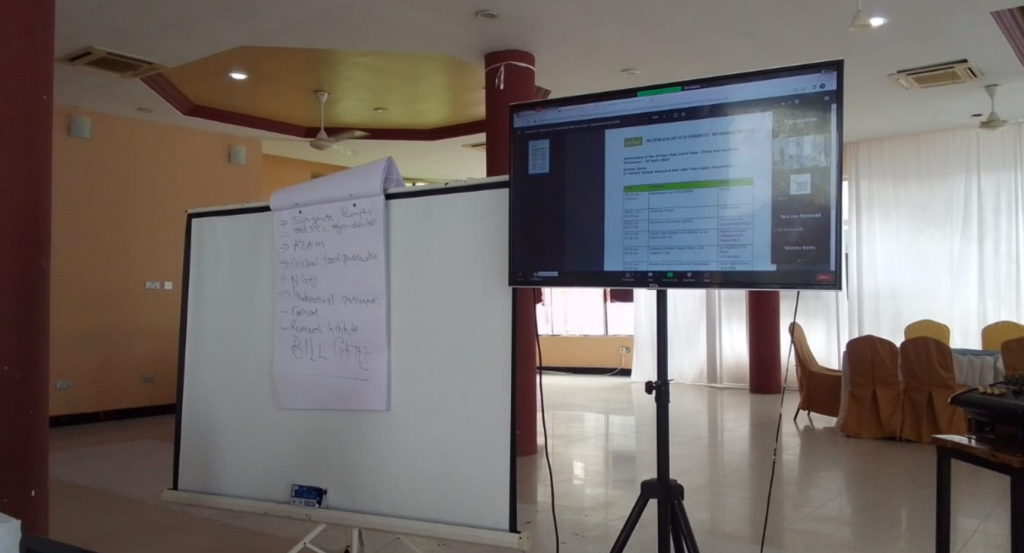
The group continued to do an individual exercise on their own eco-footprint. An eco-footprint is a way to measure the amount of natural resources needed to provide the products we consume and what is required to absorb all our waste. They were very surprised at what each one was extracting from the earth’s resources, although the exercise is not a true measure but gives an idea of where we can make simple changes for a more sustainable lifestyle. A “mini” and more technical eco-footprint was then done on the venue where three different groups looked at energy usage by recording the number of lightbulbs in all the areas such as rooms, bathrooms and public areas and what can be done to minimize their energy usage. On water, how is water used and how can it be cut done to stop the wastage of water. Signs in the bathrooms requesting guests to take shorter showers? Waste, are they separating and recycling? Some recommendations were recorded in good faith and will be sent to the hotel owner soon for consideration.
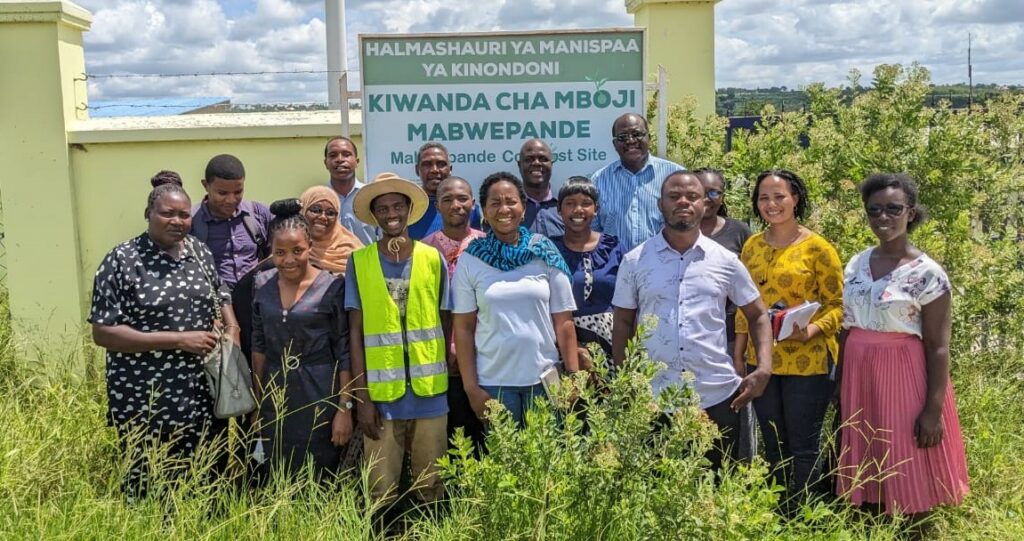
On day three the FLEAT Tanzania group visited the Mabwepande Composting Site which is found on the outskirts of Dar es Salaam on 27 April 2023. The Composting site is run by the Kinondoni Municipality in the City of Dar es Salaam and mainly uses materials from the fruit and vegetable markets and domestic waste. 50 tonnes of waste are collected daily and the figure drops to between 20-30 tonnes per day on bad days. The facility can process 150 tonnes of waste per day and produces about 20 tonnes per day of processed compost. It takes 3 months for the vegetable materials to decompose completely. This process can be used in a domestic setup to ensure living soil. Participants learned that the waste has to decompose fully before it is used in the gardens to avoid the perpetuation of some diseases. The participants learned that it is possible to use compost for enriching the soil than to use chemical fertilizers that lead to soil depletion. Most of the participants from Dar es Salaam wanted to know how to order compost for their gardens. Other than the compost, the facility also produces larvae from flies that are used as feed for chickens. The composting facility was jointly funded by the Government of Germany and Tanzania through the partnership between the City of Dar es Salaam and the City of Hamburg.
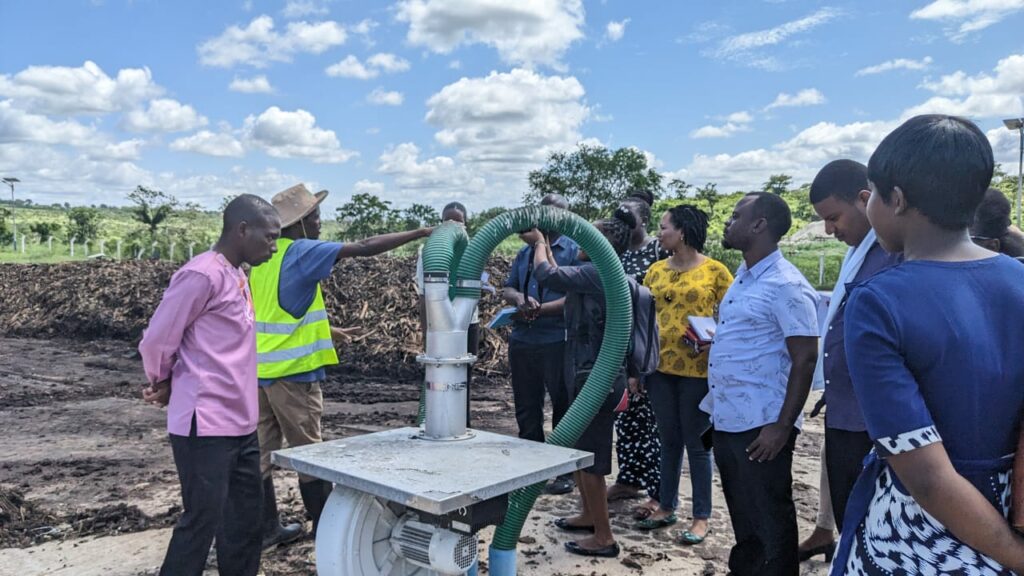
At the end of day three, a request was made for a television interview with a few faith leaders. Upendo TV, is a Christian and Religious Television whose service is aimed at meeting the needs of a clearly defined and easily identified community within the country. It is owned Eastern and Coastal Diocese of the Evangelical Lutheran Church of Tanzania. The faith leaders spoke about the importance of caring for the environment and to use our influential roles to educate our communities about Climate change and environmental sustainability. We are looking forward to seeing and sharing the footage.
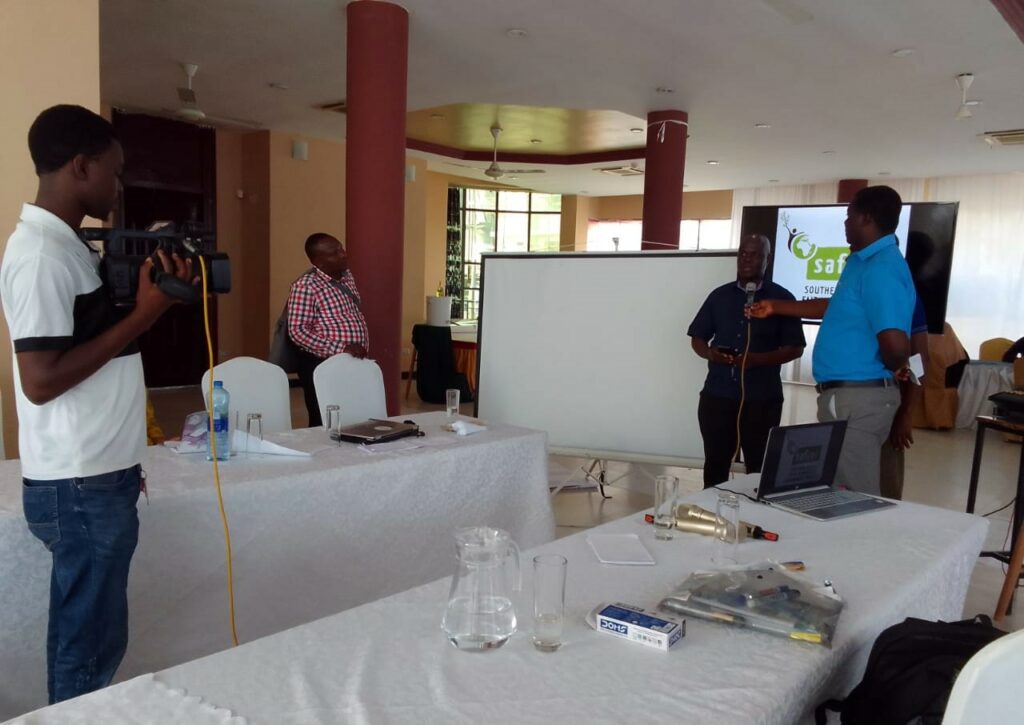
By Zainab Adams
Who we are

SAFCEI (Southern African Faith Communities’ Environment Institute) is a multi-faith organisation committed to supporting faith leaders and their communities in Southern Africa to increase awareness, understanding and action on eco-justice, sustainable living and climate change.
Featured Articles
-

South Africa: Who Ends Up Paying If DMRE Cooks the Price of Nuclear Power?
-

South Africa’s nuclear energy expansion plans continue to draw criticism, environmental NGOs chew over legal challenge
-

Earthlife Africa and SAFCEI respond to latest unsettling nuclear news regarding the ministerial determination
-

Open Wing Alliance Africa (Virtual) Summit 2023
-

The Green Connection and SAFCEI respond to energy minister's divisive and deflecting comments
-

Job Vacancy: FLEAT Coordinator







